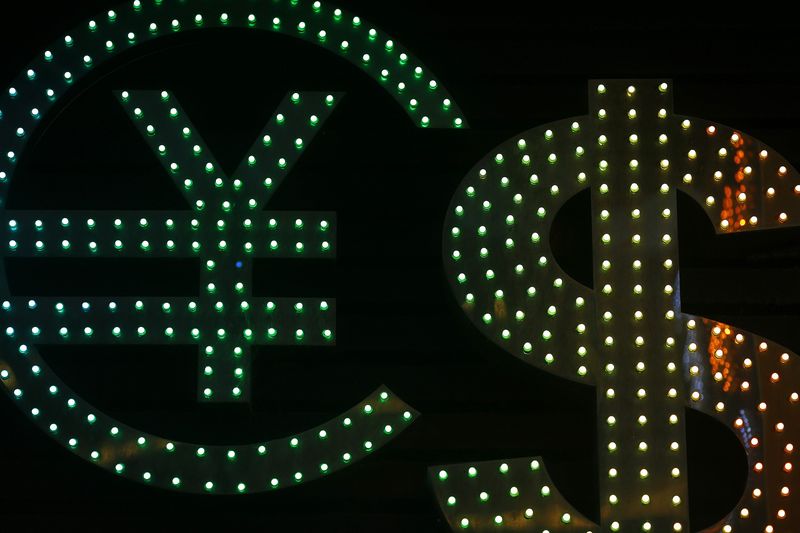By Wayne Cole
SYDNEY, Feb 26 (Reuters) - The Australian dollar was sent reeling from multi-year peaks on Friday as a rout in bond markets spread to other risk assets, spurring the country's central bank to intervene to stem a savage selloff in government debt.
The Aussie had been flying high overnight as it cleared the $0.8000 barrier for the first time since early 2018, but gravity returned with a bump when world stock markets took fright.
That left the currency flat at $0.7860 AUD=D3 , from a top of $0.8007, having shed 1.2% late on Thursday. It also wiped out the week's gains and put pressure on support around $0.7820.
The New Zealand dollar suffered a similar fate, lapsing to $0.7369 NZD=D3 from a 3-1/2 year high of $0.7463. It was still up 0.8% for the week, having found solid support at $0.7310.
Still, the pullback was nothing compared to bonds, where markets saw some of the biggest price declines in years.
At one stage Australian 10-year bond futures AU10YT=RR were down as much as 23 ticks at an 11-month trough of 98.0450, before bouncing to 98.2600. That still left them nursing losses of 30 ticks for the week, the sharpest drop since mid-2015.
Cash yields spiked as far as 1.970% AU10YT=RR , levels unseen since April 2019, before easing to 1.74%. Again, they were still up a steep 32 basis points on the week.
The selling pressure became so intense the Reserve Bank of Australia (RBA) launched an unscheduled offer to buy A$3 billion ($2.36 billion) in three-year debt. That seemed to calm markets a little and three-year yields AU3YT=RR eased back to 0.127% from 0.157%. futures YTTc1 pared their early losses but were still down 8 ticks for the week at an implied yield of 0.315%.
Markets were also wagering the RBA might have to hike rates as early as next year, even when policy makers have said no move was likely until 2024 at the earliest. turning to rate hikes are understandable given the greater confidence about the economic outlook," said Peter Munckton, chief economist at Bank of Queensland.
"But pricing looks increasingly at odds with stated global central bank policies, which have made it clear that rates will rise later in this economic cycle than they have done over the past twenty-plus years."
New Zealand's central bank governor on Friday emphasised it would be patient in tightening, having kept all its stimulus policies in place at a policy meeting on Wednesday. ($1 = 1.2716 Australian dollars) (Editing by Simon Cameron-Moore)
